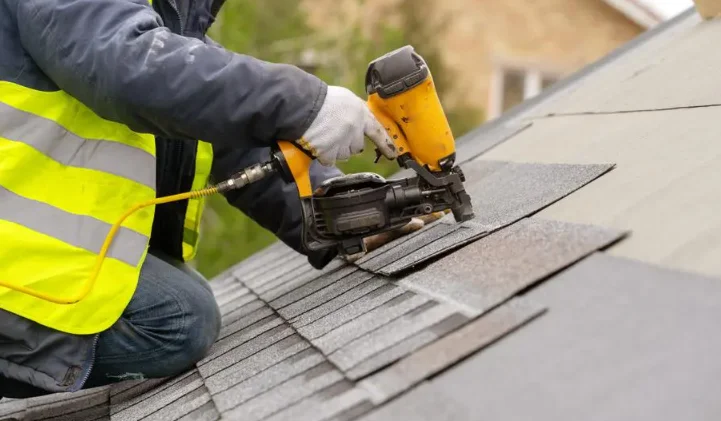Commercial roofs are essential to protecting businesses from the elements, ensuring the safety of employees and customers, and preserving the structural integrity of the building. Given their size and complexity, maintaining commercial roofs requires regular inspections, repairs, and preventative care. Roofing companies in Neenah manage these needs through comprehensive maintenance contracts that outline services, schedules, and responsibilities. These agreements assure businesses that their roofs are cared for consistently and professionally. We will explore how roofing companies handle commercial roof maintenance contracts, highlighting their approach to inspections, repairs, budgeting, and client communication.
Ways roofing companies handle commercial roof maintenance contracts
1. Structuring a Maintenance Contract
The foundation of a commercial roof maintenance contract lies in its structure, which is tailored to the property’s specific needs. Roofing companies begin by thoroughly assessing the roof to evaluate its current condition, identify potential issues, and understand the materials and systems in place. This initial inspection provides the basis for creating a customized maintenance plan.
The contract typically includes a schedule of routine inspections, which may occur semi-annually, annually, or more frequently, depending on the roof’s age, materials, and environmental exposure. These inspections identify wear and tear, ensure proper drainage, and address emerging problems.
Additionally, the contract specifies the scope of services covered, such as debris removal, minor repairs, and sealing. The contract often includes provisions for discounted rates or priority scheduling for more significant repairs or replacements. By structuring the agreement to address the property’s unique requirements, roofing companies ensure the maintenance plan is practical and cost-effective.
2. Conducting Routine Inspections
Routine inspections are the cornerstone of any commercial roof maintenance contract. Roofing companies perform these inspections to monitor the roof’s condition, identify damage early, and prevent small issues from escalating into costly repairs.
During an inspection, professionals examine the roof’s surface, checking for signs of wear, such as cracks, punctures, or loose materials. They also inspect drainage systems, flashing, and any rooftop equipment to ensure everything is functioning correctly and securely attached. For flat roofs, pooling water is a common concern, and inspectors take steps to address poor drainage or clogged outlets.
In addition to visual assessments, roofing companies may use advanced tools, such as infrared imaging, to detect hidden issues like moisture intrusion or insulation damage. After each inspection, the client receives detailed reports outlining findings, recommendations, and any actions taken. These inspections help maintain the roof’s integrity and extend its lifespan by addressing problems proactively.
3. Performing Preventative Maintenance and Repairs
A key aspect of commercial roof maintenance contracts includes preventative maintenance and minor repairs. Roofing companies take a proactive approach to ensure the roof remains functional and resilient to environmental stressors.
Preventative maintenance tasks include cleaning debris from the roof and gutters, resealing seams and flashing, and applying protective coatings to extend the life of the materials. These measures reduce the risk of leaks, water damage, and structural deterioration, saving businesses from costly repairs in the future.
When minor issues are identified during inspections, roofing companies address them promptly as part of the maintenance contract. For example, replacing damaged shingles, patching small holes, or securing loose flashing are common tasks that prevent further damage and ensure the roof remains watertight. By including these services in the contract, businesses can avoid unexpected expenses and disruptions.
4. Managing Budgets and Long-Term Planning
Commercial roof maintenance contracts also play an important role in helping businesses manage their budgets and plan for long-term roofing needs. Roofing companies provide clear pricing structures and timelines within the contract, allowing businesses to allocate resources effectively and avoid unexpected costs.
Regular maintenance reduces the likelihood of major repairs or replacements, which can be expensive and disruptive. Businesses can avoid significant financial strain by addressing issues early and ensuring their operations continue smoothly. Additionally, roofing companies often include provisions for long-term planning, such as scheduling major repairs or replacements at appropriate intervals.
These contracts give businesses the transparency and predictability they need to manage their roofing expenses while ensuring the roof remains in optimal condition. By working closely with clients to create budget-friendly plans, roofing companies demonstrate their commitment to supporting long-term property management goals.
5. Building Strong Client Relationships
Another important aspect of managing commercial roof maintenance contracts is fostering strong client relationships. Roofing companies prioritize clear communication and reliability, ensuring businesses feel confident in the services provided.
Regular updates, detailed reports, and prompt responses to client inquiries help build trust and demonstrate accountability. Roofing companies also educate clients about the condition of their roofs, explaining the significance of recommended maintenance or repairs. This collaborative approach empowers businesses to make informed decisions and reinforces the value of the maintenance contract.
By maintaining open communication and delivering consistent, high-quality service, roofing companies establish themselves as trusted partners in the care and management of commercial properties.
Commercial roof maintenance contracts ensurel roofing systems’ longevity, functionality, and cost-effectiveness. Roofing companies handle these contracts by structuring tailored agreements, conducting routine inspections, performing preventative maintenance, and managing budgets effectively. Their proactive approach helps businesses avoid costly repairs, maintain safe and secure environments, and plan for the future. Roofing companies are vital in protecting commercial properties and supporting business operations by fostering strong client relationships and providing reliable service. Investing in a maintenance contract is a smart choice that ensures long-term value and peace of mind for property owners.

Shannon Reyes is a seasoned writer with a knack for crafting engaging blogs on a variety of service industries, including plumbing, cleansing, moving, pest control, and roofing. With a keen eye for detail and a passion for helping readers navigate complex topics, Shannon brings her expertise to life through informative and accessible content.











